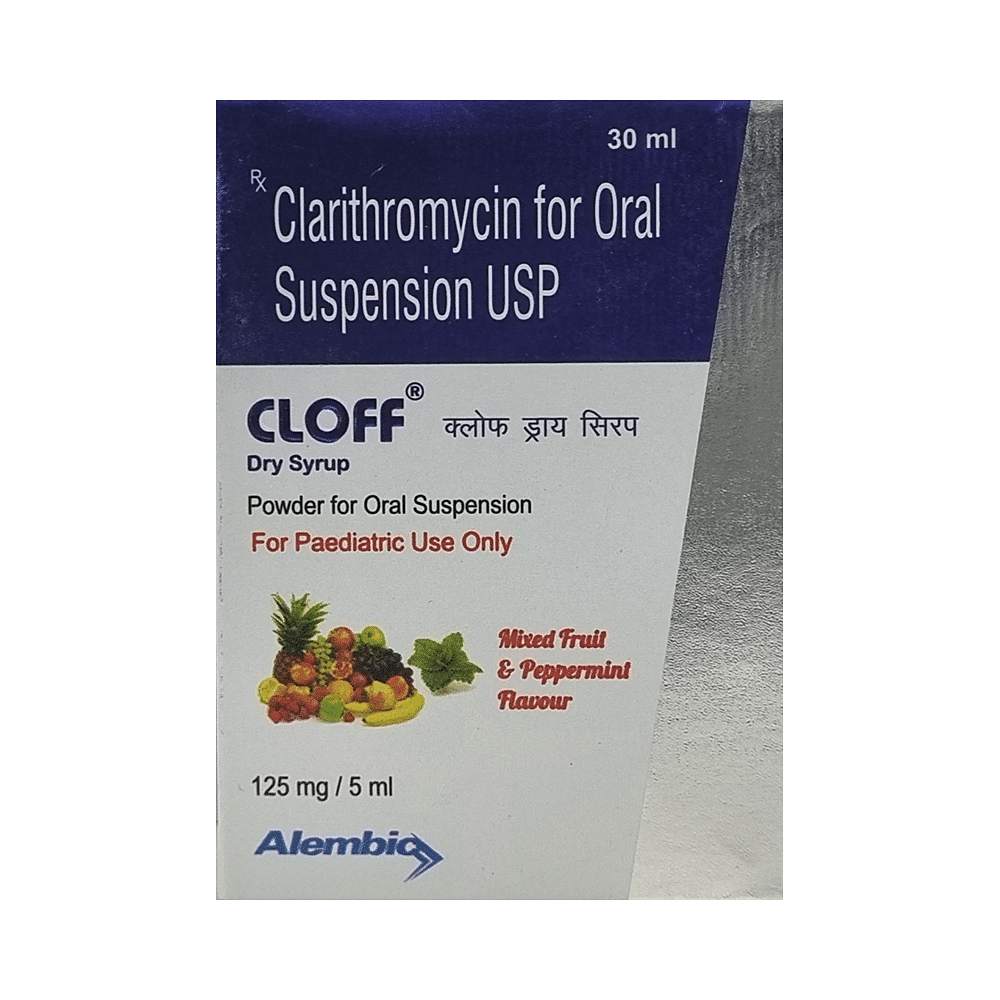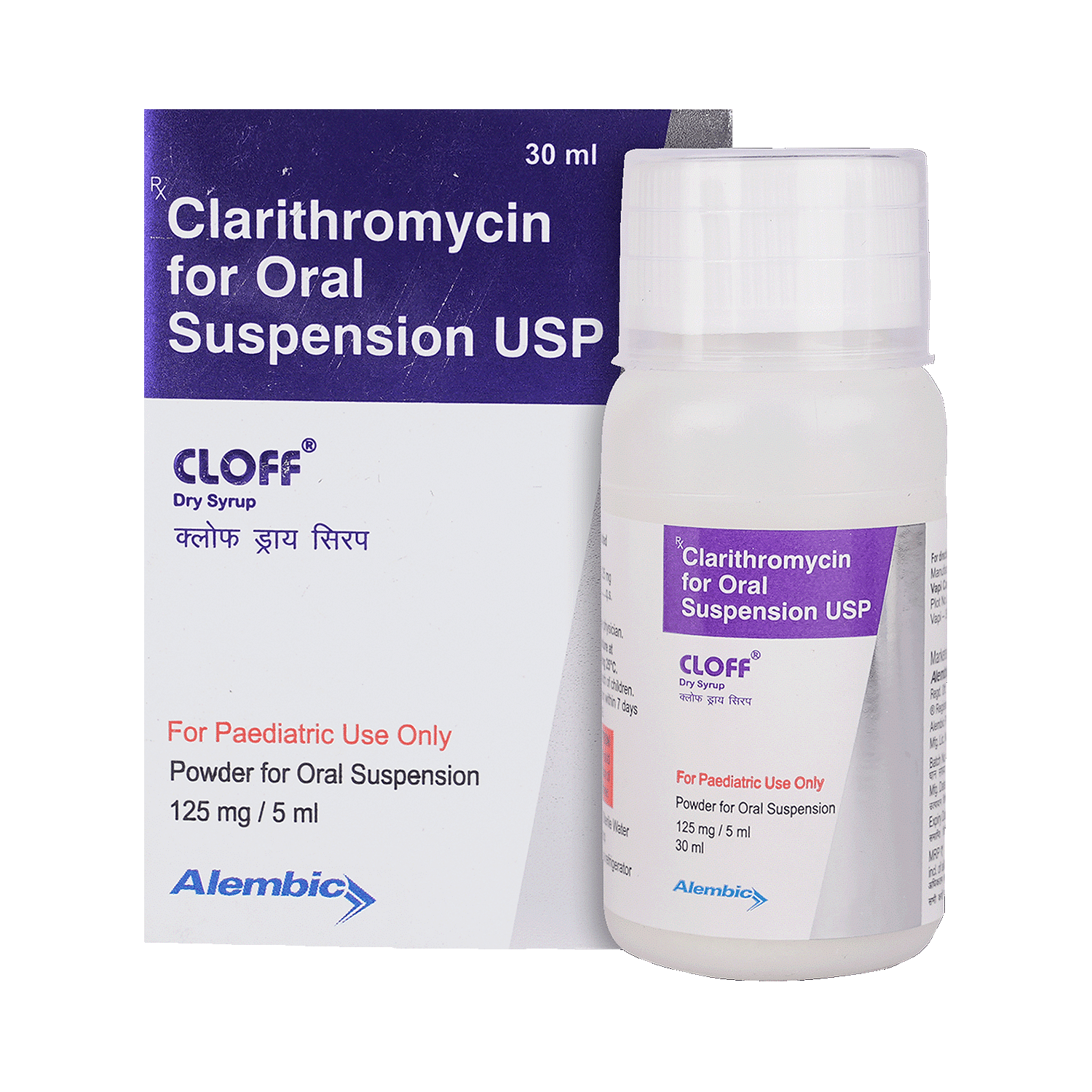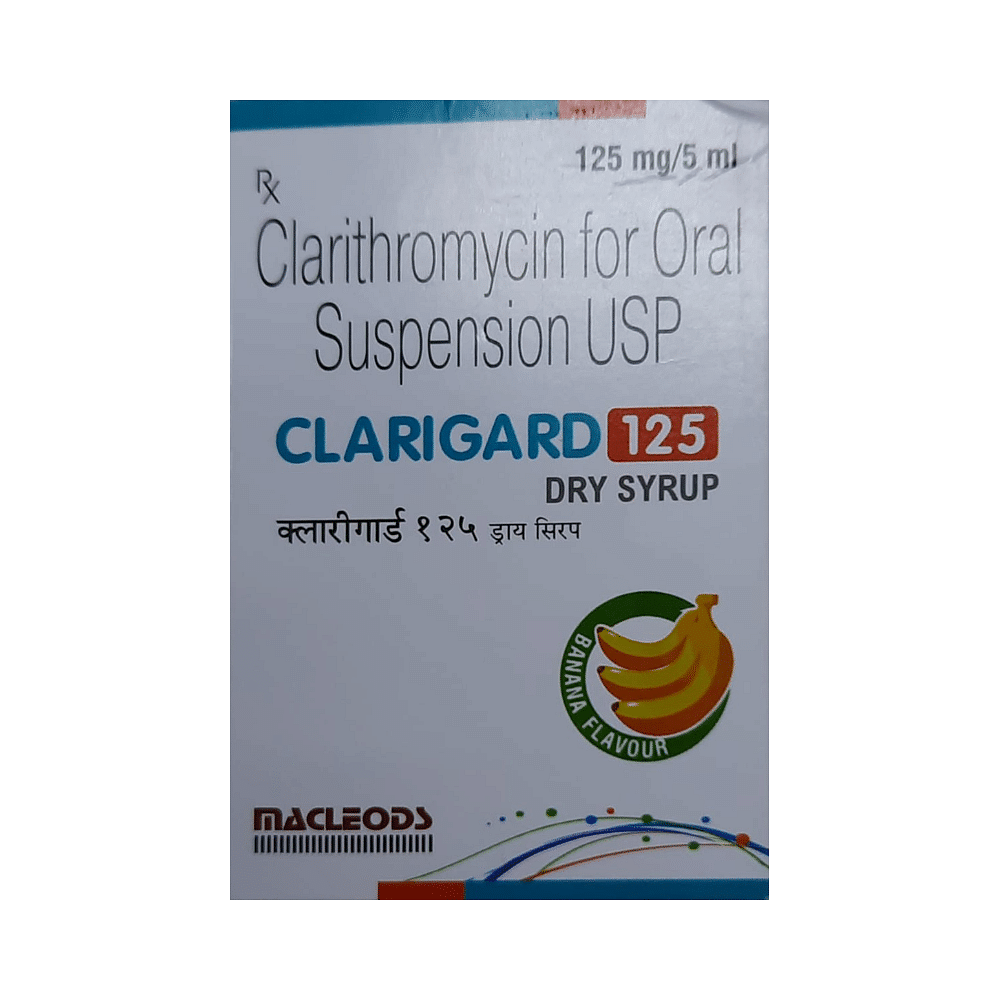
Carithrotic 125mg Dry Syrup
Manufacturer
Theon Pharmaceuticals Ltd.
Salt Composition
Clarithromycin (125mg)
Key Information
Short Description
Carithrotic 125mg Dry Syrup is an antibiotic medication used to treat a wide range of bacterial infections in children.
Dosage Form
Dry Syrup
Introduction
Carithrotic 125mg Dry Syrup is an antibiotic medication given to children to treat a wide range of bacterial infections targeting the ear, throat, teeth, lungs, heart, skin, and gastrointestinal tract. It also helps treat bacterial infections that can occur in children with HIV due to their weak immune systems.
Directions for Use
Your child must complete the entire course of this medicine. Stopping the medicine without completing the dose can bring back the infection or make the bacteria resistant.
How it works
Carithrotic 125mg Dry Syrup is an antibiotic that works by stopping the bacteria from utilizing proteins that are necessary for the bacteria to survive and perform important functions. By doing so, it stops the infection-causing bacteria from growing further and prevents the infection from spreading.
Quick Tips
Your child must complete the entire course of this medicine Encourage your child to drink plenty of water in case diarrhea develops as a side effect Do not give Carithrotic 125mg Dry Syrup to your child for cold & flu until and unless advised by the doctor Only give Carithrotic 125mg Dry Syrup to your child for their current infection Stop the medicine and contact the doctor immediately if your child develops an itchy rash, facial swelling, and breathing difficulties soon after the intake
Related Medicines

Cloff Dry Syrup

Clerich 125mg Dry Syrup

Megthro 125mg Dry Syrup

Clevercin 125mg Dry Syrup

Cloff 125mg Dry Syrup

Clarixl 125mg Dry Syrup

CLR Dry Syrup

Clarigard 125mg Dry Syrup Banana

Ritrocin 125mg Dry Syrup

Aliclair 125mg Dry Syrup
Frequently asked questions
In what dose should I give Carithrotic 125mg Dry Syrup to my child?
The dosage of Carithrotic 125mg Dry Syrup is determined by the type of infection, its severity, and your child's age and weight. Never adjust the dosage on your own as this could lead to side effects or reduce the medicine's effectiveness. If given correctly (dose, timing, route), your child may start showing improvement after a few regular doses. However, ensure you complete the full course of medication without stopping it abruptly, as this can allow bacteria to become resistant to the drug.
What if I accidentally give an overdose of Carithrotic 125mg Dry Syrup by mistake?
Carithrotic 125mg Dry Syrup is unlikely to cause serious harm if a larger dose is given by mistake. However, it's important to be cautious as accidental overdose can lead to unwanted side effects and even worsen your child’s condition. If you believe you have overdosed on Carithrotic 125mg Dry Syrup, please contact a doctor immediately.
Are there any possible serious side effects of Carithrotic 125mg Dry Syrup?
Some potential serious side effects associated with this medication include abnormal heart rhythm (QT prolongation), allergy, diarrhea, and severe gastrointestinal infections (superinfections). It is important to consult a doctor immediately if your child experiences any of these symptoms.
Can other medicines be given at the same time as Carithrotic 125mg Dry Syrup?
Carithrotic 125mg Dry Syrup can sometimes interact with other medications or substances. It is crucial to inform your doctor about any other medications your child is taking before starting this treatment. Additionally, consult a doctor before administering any medication to your child.
Can I get my child vaccinated while on treatment with Carithrotic 125mg Dry Syrup?
Antibiotics generally do not interfere with the ingredients in vaccines or trigger adverse reactions in a child who has recently been vaccinated. However, children undergoing antibiotic therapy should avoid vaccination until their illness resolves fully. Once your child is feeling better, they can be immunized as per usual practice.
Which all lab tests should my child undergo while taking Carithrotic 125mg Dry Syrup on a long-term basis?
The doctor may advise periodic kidney function tests, liver function tests, and baseline ECG for your child's ongoing treatment to monitor their condition.
Can Carithrotic 125mg Dry Syrup affect my child’s digestion?
Children have delicate stomachs. They may experience digestive issues when taking medication and antibiotics can also disrupt the natural balance of bacteria in their gut, increasing the risk of digestive problems. If your child develops diarrhea while on Carithrotic 125mg Dry Syrup, do not stop the medication course. Instead, contact your child’s doctor for further guidance.
My child is suffering from a muscle weakness disorder. Is it safe to give Carithrotic 125mg Dry Syrup?
Carithrotic 125mg Dry Syrup should be used cautiously in children with neuromuscular disorders like Myasthenia Gravis, as it may worsen symptoms and even cause the onset of new ones.
How can bacteria develop resistance against Carithrotic 125mg Dry Syrup?
Using Carithrotic 125mg Dry Syrup when your child doesn't need it gives bacteria a chance to adapt and overcome the medication. This makes the medication ineffective in treating the infection later on, as the bacteria become resistant to treatment.


